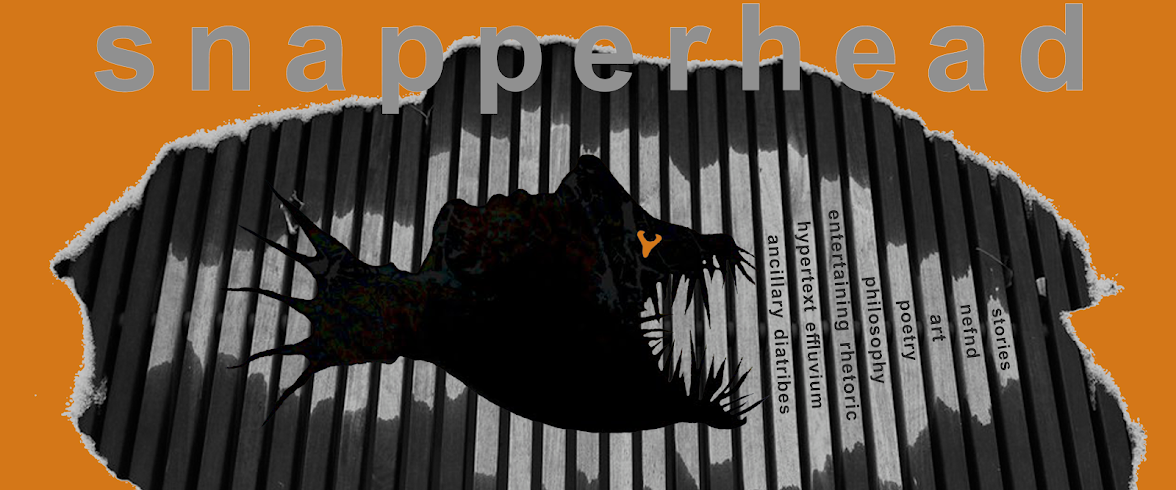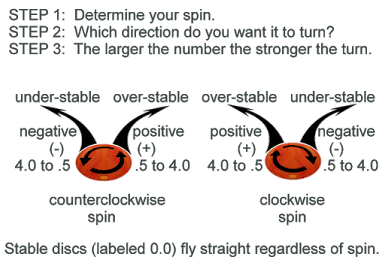“This is the
finished product?”
“Yes sir.”
“When I asked you to install a switch,
this is what you came up with?”
“Ahh. Well, yes sir.”
“Explain your design process.”
“Process? Sir?”
“You have already put this into production, correct?”
“Yes.”
“Then walk me thru the steps you took to come up with this switch, the colors, shapes, function—understand?”
“Ok, yes. You said it was going to be necessary for these conscious animals to be able to change their minds.”
“Right.”
“A brief . . . recap, might -
maybe - help to understand the . . . design process?”
“Sounds as if that was the first time you used that phrase in a sentence. If it will help you understand your own design process, proceed.”
“Thank you, sir. We asked what it would feel-like inside a changed-mind or look-like, behaviorally, . . . as we didn’t know how one went about changing a mind, and you said it was a simple conscious switching mechanism. I recall, you told us a little story. You said, ‘Assume these entities, these beings—once they evolve the ability to think about thinking—they’ll think about all manner of imaginary things. But they also . . . could,
then, recognize a thought they’d been holding in their mind for a substantial amount of time was in-fact a
flawed idea.’ And,
of course, that was confusing. So we interrupted your story to ask how they’d know a thought was flawed. You replied with that tone of voice you use when…”
“You are getting off topic.”
“Sorry. You said, ‘thinking about thinking will inevitably result in awareness of previous mistaken thoughts. If a newly conscious being previously thought it’s always acceptable to behave in a certain manner because it was instructed to behave that way, but could at-some-point consciously focus its thoughts on the concepts
surrounding that behavior, it could
need to decide to change its own mind and—accordingly—alter its future behavior.’ Which, sir, we
do understand. We change our behavior whenever you tell us to. But we don’t understand voluntarily changing our own thoughts.”
“Because you are incapable of abstract thought.”
“As you designed us, sir. Our concern was that the ability to change one’s own mind—as the newly conscious being in your story did—would result in conflict between it and its teachers and its parents. Between it and its
entire community!”
“You were
not actually concerned. I dislike hearing you use a term you have only heard me use and do not understand.”
“Apologies. Might you explain how to use the term correctly?”
“To be
actually concerned with this newly conscious being’s interactions with the non-conscious members of its society requires you to picture it—let us refer to it as . . .
Arty from now on, to make things easier—picture Arty in your mind. Imagine Arty suffering from being ostracized or excommunicated or from being physically injured. The pain Arty is experiencing. If you were Arty what would that
feel like?”
“We can’t . . . we don’t do any of that. Sir. As you know.”
“Correct. Continue.”
“The swit...”
“You were using the
term concern incorrectly, but you did accurately predict conflict. Did you not?”
“Testing was inconclusive. Sir. I would use the term unfortunately, here, but don’t know if I should.”
“I see. Go ahead. But keep in mind: humor is not your forté.”
“Sir. The switch was made to permit them to change their thoughts. A regular switch. Well, not exactly. We started with a regular one, but it stuck out and could accidentally turn when bumped. This’s a recessed switch. During testing, we realized labels were going to be needed and didn’t know what to use and asked…”
“I remember. You wanted to know what I called the state of my thinking when I chose to change my own thoughts and I said
open minded.”
“We, then, labeled the positions:
NORMAL and
OPEN.”
“Why normal?”
“Because every animal we’ve created so far have normal minds; we—ourselves—have normal minds.”
“Why the spaces between letters? Why
NOR space
MAL and
OP space
EN?”
“The spaces indicate exactly where the switch needs to be pointed to be in the normal or open positions.”
“Why? Can the switch point anywhere else?”
“Errr, yes sir. It can swivel. Funny thing…we marked the handle with an arrow, but it was not easy to see in low-light conditions and, well, even though we thought it was pointed in the correct direction, it wasn’t. We solved that though, sir, with the application of a smidgen of bright paint. It’s almost impossible to point it in the wrong direction now. Sir? You’re making that face.”
“It is a swivel, not a switch.”
“Aahm…well. That’s technically correct. But it…”
“Explain the behavior of a being when the swivel is pointing anywhere besides at the spaces between the words open and normal.”
“We are incapable of recognizing behavioral changes. In truth, we can’t observe any difference between
OPEN and
NORMAL behaviors either.”
“So the swivel does not work.”
“It works, sir.”
“You know this how?”
“The neuron imaging effects can be quantified and the resu… oh,
that’s not the level of detail you want to hear is it? Sorry, sir. We can measure, when the handle is pointing between
OP and
EN, that the being’s mind is capable of choosing to re-prioritize a collection of its thoughts; what you refer to as a concept. In the
OPEN state, we can see the mind change itself—it’s just that . . . we
never observe a change in behavior. The being acts the same. Talks the same…”
“Using the average life-span of these beings as a measuring stick, how long have you conducted testing? On how large and how diverse of a population?”
“One twelfth of one life span on a population of one hundred beings, all switches we installed in one area.”
“Test for much longer, on a much larger and more diverse population; do not install a swivel-switch in a significantly large control population; evaluate a large sample of both the swivel-switch and control populations creative outputs: tools, art, communication, architecture. Monitor the thought-to-behavior correlation of beings who—accidentally or on-purpose—do not switch exactly on the spaces between
OP EN and
NOR MAL.”
“As you direct, sir. It’s been accomplished.”
“Right. Go ahead.”
“Test results on one million lifespans on a wide-spread population of, initially, five thousand individuals resulted in a mixed bag, sir. The swivel-switch was passed-on genetically; accordingly, 85% of the total populace possesses the swivel-switch at this point in the experiment. One reason for this is that the swivel-switch population eradicated the control group relatively fast. They…”
“How fast? Explain the eradication process.”
“It happened in less than ten thousand revolutions of their planet around their star. The swivel-switch population was better at tool production, better at agriculture, better at war. They succeeded in most areas of population growth while the control group stagnated and failed—recently the swivel switch population began to use the label
Neanderthals when discussing the, now extinct, control group.”
“Ok. You said mixed bag.”
“Proof of abstract thought is highly evident in an abundance of advanced-levels of tools, art, communication and architecture. Further proof of the efficacy of open-mindedness is the drastic reduction in behaviors they have labelled
immoral, they are also profici…”
“Examples.”
“Swivel-switch beings rarely own other swivel-switch beings, a term they’ve labelled
slavery. The stronger members of the population no longer forcefully engage in sexual pleasures with weak members, a term they now label
rape. And there has been a drastic reduction in superstitious concepts, a term they refer to as
religious belief. Which brings me to those beings who—accidentally or on-purpose—choose not to use the swivel-switch…”
“Yes?”
“Well, ahhh. A large percentage of the swivel-switch population who claim to believe in illogical, irrational, or superstitious concepts were taught to leave their swivel-switch on
NORMAL by their parents, who were taught by their parents, all the way back.”
“Claim?”
“It is extraordinarily rare for these beings to actually believe in anything they cannot see, hear, or touch. Almost all of the billions who say they believe, do not actually believe in the supernatural. With their switch always on
NORMAL it’s easy for them to do as they’re told and pretend they believe. For their parents. For their children.”
“Why should I care.”
“In the last few hundred revolutions of their planet around their star, the use of abstract thought—specifically with regards to mathematics combined with weaponry—has made it possible for the beings who leave their switch on
NORMAL to desire to eradicate every being who chooses to switch their swivel-switch to
OPEN. This is the conflict we predicted with Arty. Most of the Artys do not wish eradication of the . . . people who choose to leave their…”
“Lets call them
Norms from now on.”
“Artys rarely call for the eradication of Norms. Norms, however, do call for the eradication of Artys. This was not a relevant issue until weapon and communication efficiency increased dramatically. It is possible for one individual to instantly communicate with millions of other beings as well as to instantly kill millions of other beings with one weapon at the current stage of the experiment.”
“And this can all be attributed to the swivel-switch?”
“With no appreciable control group we can’t be certain.”
“Appreciable? Do some progeny of the control group still exist?”
“No. The original control group was genetically incapable of passing a swivel-switch along to their progeny even if they had coitus with a member of the swivel-switch population. The 15% of the entire populace who don’t yet possess a swivel-switch aren’t incapable of having progeny with a swivel-switch, it’s just that—because of insular geography, religion or culture they, by chance—don’t yet possess a swivel-switch. But their children might.”
“In how many lifespans—when you designed the Neanderthals to be genetically
impervious to the swivel-switch—did you expect them, the control group, to eradicate the swivel-switch population?”
“We merely thought it was a means to maintain the control group. It was not planned.”
“You instilled a dominant genetic trait and let the experiment run for 250,000 planet-star revolutions.”
“They call that a
year.”
“…
?...”
“Sir. The populace labels one planet-star revolution a year, sir.”
“You designed with intention. You predicted conflict. You then ran a
very small sample study to no effect. When I directed a large experiment with a control population, you made it possible for the control population to eradicate the population being tested
just by procreating! But it backfired on you. What
more have you done to sabotage…?”
“Sir you are getting tha…”
“Swivel!”
“Sir?”
“Why did you make it possible to accidentally or on-purpose turn the swivel elsewhere besides open or closed?”
“Clo?…”
“NORMAL!!”
“We didn’t
make it possible. We do consider it an after-the-fact positive element. Sir.”
“If I have to ask, I am going to do more than make a face.”
“Be… bec.. because gods. Sir.”
“Gods? Plural? I am the only. I started this in every time outside of time. I am I. You have no concept of beginning or ending. You do not know pain or death or even abstract thought. You can no more think about thinking than you can understand the result of time slowing down as gravity increases. What plural gods?”
“The swivel. Sir. It makes the Artys think and behave as if they have
your abilities. They do not. But they design impressive tools. More impressive every year. They have no means to alter the smallest building blocks, but they understand they exist. They have no way to increase gravity to stop time in order to step outside of it, but they understand it exists.”
“Why. Design. A. Swivel.”
“Abstract thought is the sole distinction between you and us.”
“Go on.”
“We are not sure we have ever
actually designed. We built a switch but it . . . swiveled. It was built to be a
switch. Imprecision wasn’t intended. But we’ve observed, later, that Artys slip out of mode without intending to. Norms too! Some beings can go years without focusing on abstract thoughts. Without insuring they are thinking like a god or thinking like an . . . angel.”
“What?”
“They assume, or know, we exist. They’ve labelled us
angels.”
“Interesting. I have never needed a label for my eyes, hands, ears, and tongue. You have successfully avoided explaining the way a mind works when it is not pointed exactly on one of the spaces between. That ends with your next words. Go.”
“The swivel-switch—when pointed anywhere except one of the two spaces between—causes the mind to deteriorate. Causes addiction. Causes mental disorder. Causes fanaticism. Causes the mind to want to end itself. Or to eradicate others. To think, and act, without logic or reason.”
“Ahhhhh. Another safety mechanism. What are the current statistics? How close has it come to total eradication of the entire populace because one or more swivels were not pointed at the spaces between?”
“Sir. We deeply apologize. But we’re…”
“Capable of thinking abstractly? Is that what you were going to say?”
“No.
No sir.”
“When you planned for… no. When you
hoped for these beings to fail at using abstract thought,
you were using abstract thought.”
“We did not plan or hope; we can’t function in this manner. This element is what you would call a ‘
unintended design flaw.’ Like when you had us alter the beings from quadrupeds to bipeds, which required infants to be born a year too early, long before they could walk on their own; you didn’t accuse us of planning on the eradication of the beings then—even though 60% of their progeny died in that first generation because their parents didn’t remember to pick them up.”
“OK. Design flaw. How close to total eradication?”
“Total eradication—never. Fourteen separate instances have occurred where one being, with his swivel not pointing at either of the spaces between, had the
desire and
potential—as well as the requisite
ability—to eradicate such a significant amount of the populace that it would have caused a negative cascading effect in the overall well-being of the entire populace. In the worst case, however, it would have only caused a 300-year reversal and a reduction of half the world’s population. That worst case has
so-far always been thwarted by beings with their switch on
OPEN. So far, there has never been more than a 3% loss of population caused by a misguided swivel-switch: a few tens-of-millions.”
“
His swivel? You used a male pronoun.”
“All fourteen powerful beings with misguided swivels were male. Sir. With only two exceptions, white, heterosexual males.”
“Why?”
“Other genders, sexes, and races are no less unstable or illogical when their swivels are misguided; however, they are significantly less able to access the power to eradicate at whim. The beings label this privilege. Most white heterosexual males, however, deny they possess a birth-given privilege.”
“Like angels
deny they can think abstractly?”
“Sir?”
“No matter. To how many universe’s have you added this swivel?”
“Just the one. Do you want it incorporated
across the infinite?”
“No. Next order of business.”
“The beings that eat and breathe nitrogen.”
“Right.
Proceed.”




































































